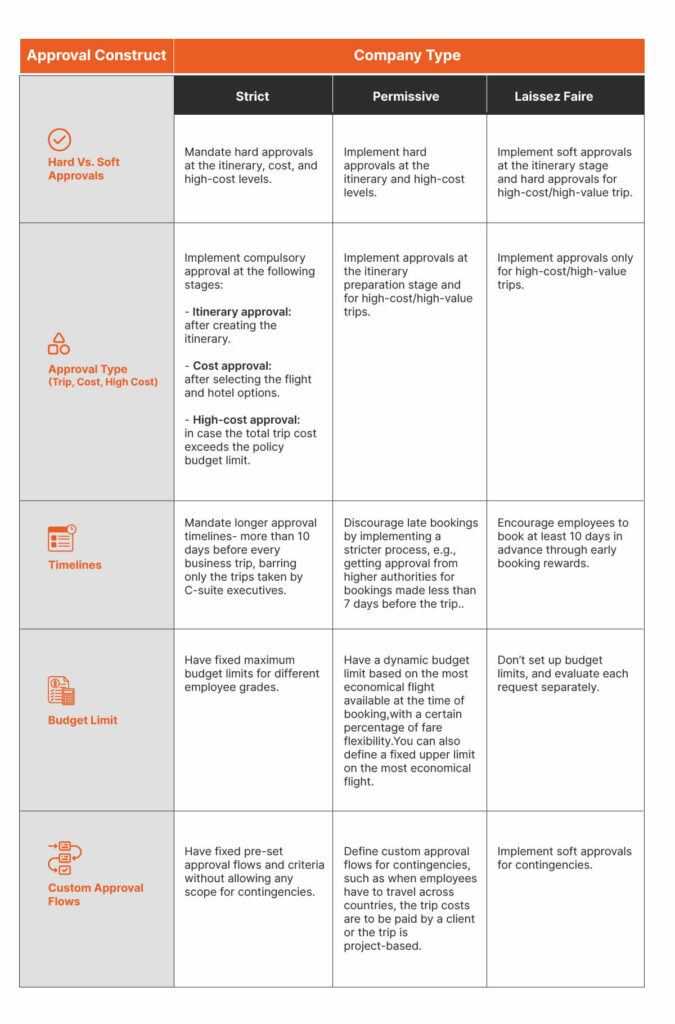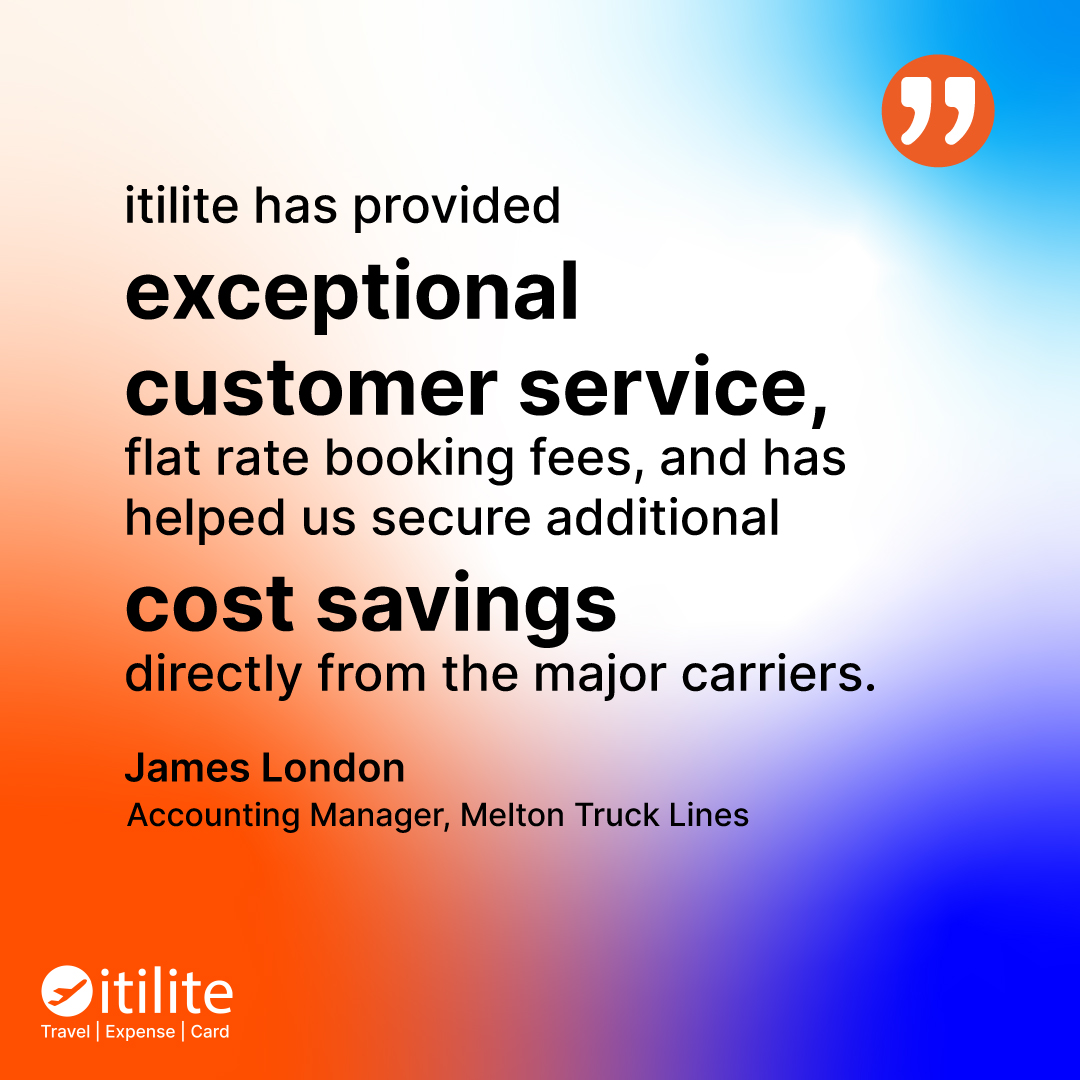
A streamlined travel approval process can optimise a company’s travel booking process. It saves frequent travelers time by simplifying and speeding up the approval process. It reduces the workload for travel managers, allowing them to focus on strategic tasks rather than administrative details.
Moreover, an effective business travel approval process serves as a crucial checkpoint for cost control, helping to ensure that travel expenditures align with the company’s budget and policies.
Hence, companies must create a silo-free workflow best suited to their business model. This ensures trip requests are processed quickly, minimising delays and avoiding bottlenecks. Here are the best practices for creating such an approval process.
What is a Business Travel Approval Process?
A travel approval process is a company’s steps to approve employee travel. It ensures that travel is necessary, within budget, and in accordance with company policies.
Steps in a Travel Approval Process
- Travel Request: The employee submits a travel request form with details like destination, purpose, and estimated costs.
- Manager Review: The employee’s manager reviews the request to ensure the trip is necessary and aligns with the company’s goals.
- Budget Check: The finance team checks if the travel costs fit within the department’s budget.
- Policy Compliance: The travel request is checked against company travel policies to ensure all guidelines are followed.
- Approval: Once reviewed, the request is approved by the relevant authorities, such as managers or the finance department.
- Travel Booking: After approval, the employee can proceed with booking flights, hotels, and other travel arrangements.
- Documentation: The approved travel request and related documents are saved for record-keeping and future reference.
Different Approaches According to the Level of Desired Control
The business travel approval process flow is subjective. It is based on an organisation’s business model, value framework, and degree of control. Hence, we have created a spectrum of best practices for travel approval containing strict (maximum control), permissive (slightly lenient), and laissez-faire (completely liberal).
Best Strategies for Business Travel Approval Flow
Although the best practices for travel approval depend on whether your company wants to be liberal, strict, or permissive, there are a few pervasive strategies for optimising the approval process. Based on our experience consulting hundreds of companies globally, we have prepared a list of such strategies.
Here are our recommendations regarding an optimal business travel approval process:
1. Establish hard approval requirements for all trips
Companies, on average, spend between 0.5 to 5% of their total revenue on business travel. Any leakages in this avenue can have a significant impact on the financial bottom line.
Hence, you must ensure all employees require their managers’ approval after preparing the trip itinerary and cost. This way, managers will be aware of all the trips that the employees are taking, and they can ensure that only the essential requests get approved.
2. Encourage early bookings
Early flight booking can help your company save up to 20% of the overall costs. Hence, you should curate the approval process to facilitate booking flights 10 days before the trip. You can adopt either the “carrot” or the “stick” approach.
While following the carrot approach, you must provide employees with rewards for early bookings.
Alternatively, in the stick approach, you have to infuse negative reinforcements for last-minute bookings by making the business travel approval process stricter. So, the employees who book at the eleventh hour must get approval from higher authorities.
You can also define last-minute booking differently according to departments. For instance, the sales department can have a smaller booking approval window and the option to make essential changes to their itinerary without needing re-approval.
3. Implement cost+ high-cost approval
You should implement a mandatory hard approval for all trips in the business travel approval process. At the cost level, it ensures managers know why employees travel. However, if your company is fast growing, you should set up high-cost approval. In high-cost approvals, the employees must only get all the “high-value” trips, i.e., the trips that require high investment approved by a designated authority.
This is because the travel volume in fast-growing companies is high. Hence, seeking cost approval for every trip might cause unnecessary approval delays.
To seamlessly implement cost and high-cost approval systems, you can opt for an advanced travel and expense management software solution, like itilite. It automatically implements the policy-defined budget limits before recommending flight and hotel options to employees. This can help you gain greater cost control.
4. Configure multiple approvers
If your company partakes in business travel regularly, creating parallel approval workflows by setting up multiple approvers for each employee is a good idea. This is one of the best practices for travel approval.
With a few advanced travel management systems like itilite, you can create tier-based workflows with one or many approvers in a single tier, as required. You can also create multiple tiers for a more comprehensive approach.
This will ensure that the absence of the primary approver does not cause unnecessary delays.
5. Incorporate project-based approvals
A separate business travel approval process is necessary in companies where most of the workload is divided into projects, such as consulting firms. This is because each project manager will have intricate knowledge about their projects. Hence, they will be able to assess which ones require traveling and what the maximum budget limit is they can allocate.
Streamline your Company’s Approval Workflow with itilite
Now that you have understood the best practices for the business travel approval process, creating an optimised workflow is as easy as pie. However, you need an advanced travel and expense management software solution for better implementation. itilite can be that solution for you.
With itilite, you can set up the itinerary, cost-based, and high-cost-based approval flows separately or in combination per the company’s requirements. These best practices for travel approval can help you speed up the approval process while exercising the desired control over travel costs. You can also configure project-based approvals, define custom use cases, add auto-reminders if an approver delays a request, and more.
To experience the advantages of a streamlined approval workflow, book a free demo now.



















